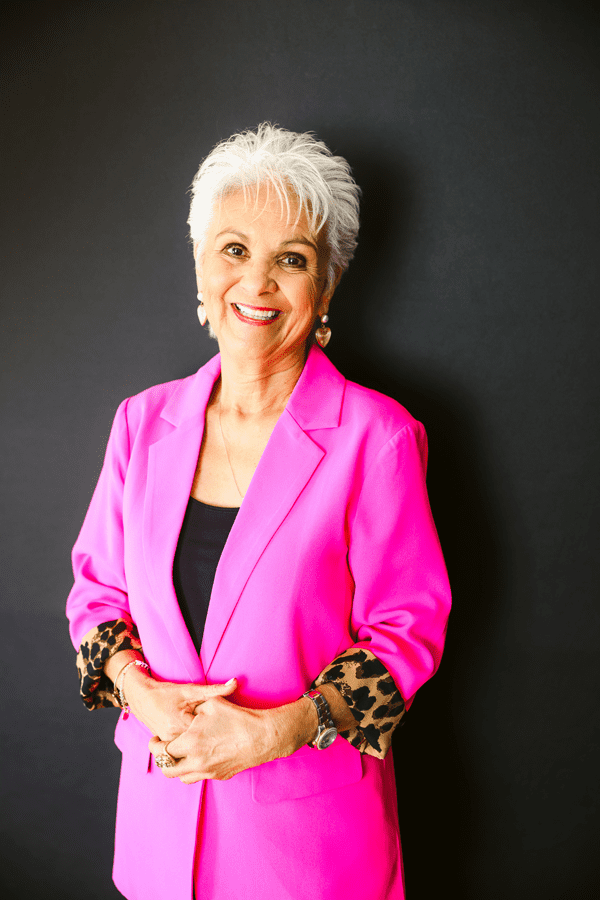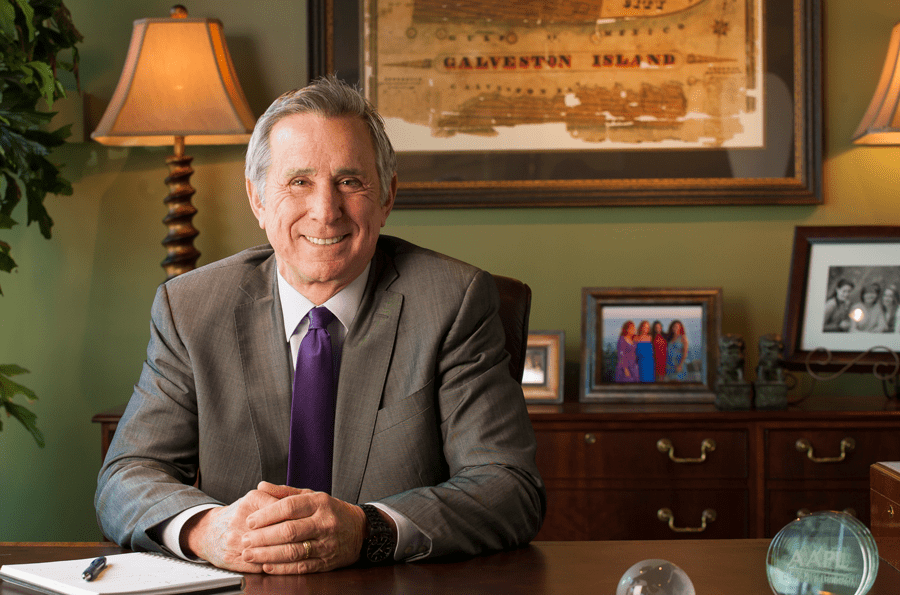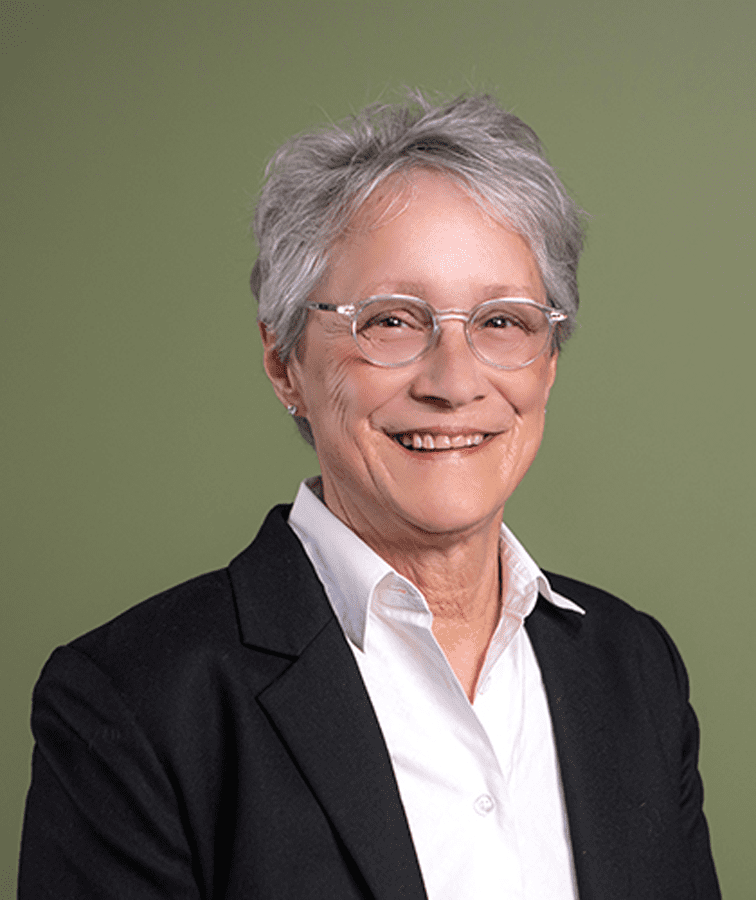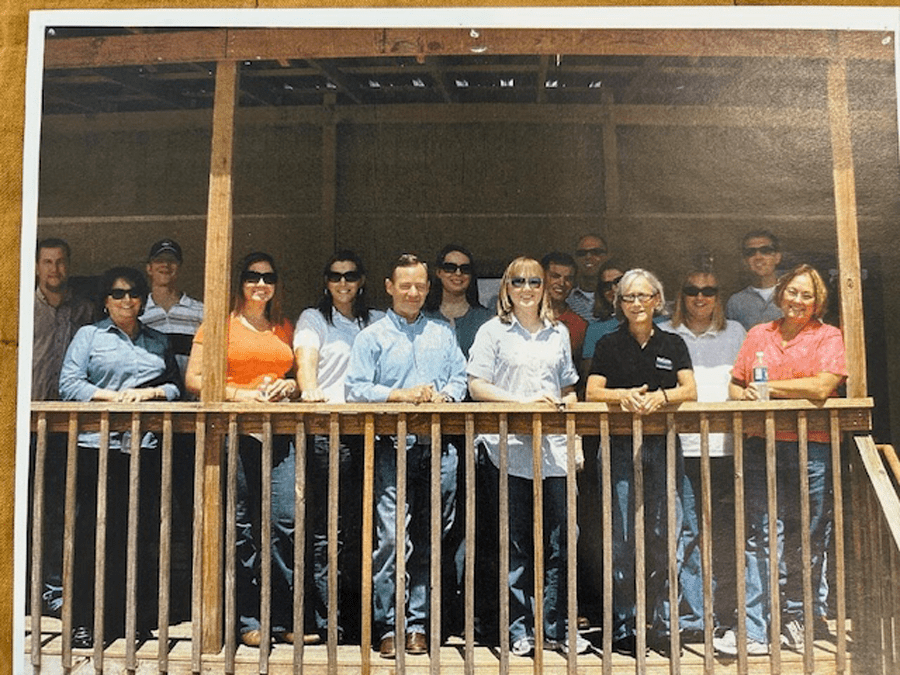The Paramount+ hit series, Landman, shines a spotlight on a role that is little known outside of the oil and gas industry. Thanks to actor Billy Bob Thornton’s character, Tommy Norris, millions of people now know what a landman does – or at least they think they do. In sharp contrast to the way Norris’ landman/crisis manager is portrayed – putting out blowouts, supervising rig crews, and dealing with drug cartels – three veteran landmen, two of whom are women, tell us what their careers actually entail and how they envision the evolving role of a landman in the changing energy landscape.

Ella McDonald
Founder McDonald Land Services, LLC
Discuss the path you took to becoming a landman and the obstacles you encountered along the way.
In 1978, my journey began in the heart of Oklahoma’s energy landscape. I was working for an E&P company when I expressed my ambition to become a landman. The owner of the company, without missing a beat, stated, “You can be a landman when pigs can fly.” At that moment, instead of discouraging me, his words only fueled my determination to prove him wrong.
Striding forward with ambition, I begged for a job from my husband’s friend, Terry Felts, who owned the Alpha Energy lease brokerage firm in Oklahoma City. However, he expressed skepticism about a woman succeeding in this field, but said he would “think about” giving me a job. When I got home, I told my husband I was certain Terry wasn’t going to hire me. To my surprise, he replied, “Oh yes, he is – he just called to check and see if it was alright with me to offer you the job.” I will always be grateful to Terry for taking a chance on hiring his first female landman.
One condition was that I had to work in the office for a month learning the intricacies of the business side of the company. It was a strategic favor made by Terry anticipating I would settle for an office role or I would quit. However, that wasn’t my plan. At the end of the month, I marched into his office and declared my intention to transition into the field. That was the pivotal moment that set my career in motion.
Within two years, my perseverance paid off. I teamed up with a colleague and together we launched our own company. During this time, I was competing against gentlemen who owned well-established brokerage firms in Oklahoma City, yet they treated me with respect and professionalism. While they may have believed I would eventually fade away, I was determined to carve out my own path and prove that women could thrive in the oil and gas industry.
Reflecting on my journey, the obstacles I encountered – doubt from others, the struggle to be taken seriously, and the societal norms of the time – only strengthened my resolve. I helped pave the way for future generations of women in the industry, proving that with passion, dedication, and determination, dreams can transcend the limitations placed upon us.
Describe your role as the owner of a land services company. What are your main responsibilities?
I develop and maintain strong relationships with clients, understanding their needs and expectations, and ensuring their satisfaction while guiding our team’s commitment to excellence. My primary responsibilities include ensuring that we provide the highest quality and most accurate workmanship, upholding the very highest ethical standards in representing our clients. I place a strong emphasis on leading by example, demonstrating the importance of hard work and dedication. My goal is to represent ourselves, our company, and our clients with integrity and professionalism at all times.
Talk about the most exciting deal you have been involved with.
The most exhilarating deal I’ve been part of unfolded when we entered a new area rich with opportunity. I immersed myself in meeting owners, building relationships based on trust and dreams, while also sharing potential benefits of resource development. The impact on lives of many was staggering. We provided new job opportunities, spurred economic growth, and supported local businesses.
Looking back, this deal was not just about oil and gas – it was about connecting with people, paving the way for progress, and creating a legacy that would improve lives for generations to come. The thrill of turning opportunity into reality is what makes our work so rewarding, and the reason why I’m so passionate about what I do!
How do you see the role of landmen evolving in the changing energy landscape?
I see the role of landmen evolving significantly in response to the changing energy landscape. While their expertise in running title and managing leases will always be essential, we’ll likely see a broader scope of responsibilities emerge. Additionally, technological advancements will play a crucial role in their evolution.
Ultimately, while the foundational skills of title work and lease management will remain vital, the role of landmen will expand to encompass a more integrated approach that aligns with the industry’s transition toward sustainability and innovation.
To learn more, visit McDonald Land Services, LLC.

Randy Nichols
CEO Cinco Energy Management Group
You had a rather circuitous path to becoming a landman. Discuss how you made the decision to embark on a career as a landman.
When I graduated from UT – Austin with a degree in zoology, I thought I wanted to be a pilot and that was the only thing I’d consider if I was going to be in the military. I served in the U.S. Air Force for five years and rose to the rank of captain. By that time, Vietnam was winding down and they had too many pilots.
After being an aircraft commander and having a crew and flying all over the world, I started interviewing with Fortune 500 companies and talking to these 20-something year olds who were doing the interviewing was like talking to frat boys.
My wife’s father was a geologist in the energy business in Houston and I knew what landmen were because some friends from UT went through the PLM program they had back then. My father-in-law gave me the names of three or four people at big companies, like Texaco, Conoco, Superior and Gulf, and they were very respectful, whether I was talking to the CEO or the landman. They were so different from those corporate types.
![Beyond Metes And Bounds 5 “[My daughter] Camille and I went to China to meet with a couple [companies] and I would say that was probably the most enjoyable thing we did.” Photo courtesy of Randy Nichols.](https://b1006343.smushcdn.com/1006343/wp-content/uploads/2025/04/Randy-Nichols-in-China.png?lossy=2&strip=1&webp=1)
It was the best thing that ever happened. We operated all over the United States. In seven years, I worked every basin and learned all the different agreements. I was the only independent on the 1989 operating committee when they redid the JOA. Everybody else was from [one of the majors].
Ponderay was a great company but, when it got sold to foreign investors, I’d kind of had my limit. I already knew I wanted to start my own company.
Describe your role as the owner of a land services company. What are your main responsibilities?
When I started Cinco Energy almost 35 years ago, my goal was not to be like every land service company. Our foundation is title research and leasing, but I had such broad experience that I wanted Cinco Energy to be something different. Originally, I took on projects where we were like the in-house land department looking into agreements, negotiating contracts, in addition to the foundational stuff, but I always wanted something [else]. I got into wind in the 1990s and 2000s and we worked in 13 states to put up wind farms – it’s the same skill set.
I also formed a separate company of expert witnesses: PhD geologists, engineers, geophysicists. Igor Anthemon, PhD, from Shell actually was our best witness and we won a large case in Kazakhstan against a vendor who was trying to rip off everybody.
I enjoy building the business – not managing it – so my goal, even today, is to continue to look for new avenues for Cinco and what I can do as a landman.
Talk about the most exciting deal you have been involved with.
I got a call from some lawyers that said, “How would you like to represent the Chinese? They’re coming to America because they want to learn how to do shale drilling and they need a landman.” So, I packed my bags and went to China and met with the Chinese National Offshore Oil Corp. (CNOOC) and they said, “You’re going to manage our land business in the United States,” so, sure enough, they opened an office here in Houston.
We also represented Sinopec with their deals in about nine different states. In about four years of work, we actually set up offices, managed all their land, looked at their well proposals, and went to the meetings with Chesapeake, Devon, and other operators until they could stand up their own land departments.
We have some smaller Chinese companies that we work with. My daughter Camille [president of Cinco] and I went back to China to meet with a couple of them and so I would say that was probably the most enjoyable thing we did.
How do you see the role of landmen evolving in the changing energy landscape?
In 2016, ‘17 and ’18, [the industry] was going south. There wasn’t a lot of oil business, and then COVID came along, and I said, “I gotta get this buggy rolling again.”
I started looking into carbon capture and pore space and our team put together about 134 pore space sites along the Gulf Coast. We had a geothermal project and a hydrogen project. We’re doing a lithium project, and several battery storage and solar projects. I think we’re the only company in the last [few] years that worked with Wall Street on securitization, where you take somebody’s PDP and roll it up into a security, and offer it to private equity. I think we will be the only company to represent insurers for reps and warranty insurance for oil and gas and those transactions.
As a landman, I think, “What skills do we have and what industries can we apply those to?” And I just go out and run them down. This is what landmen can do.
To learn more, visit Cinco Energy. Also, see Randy Nichols’ July 2022 cover feature in Energies Media.

Nancy C. McCaskell, CPL
President Masonboro Energy LLC
AAPL President 2024 – 25
Discuss the path you took to becoming a landman and any obstacles you may have encountered along the way, as a woman in a male-dominated industry.
I began as a landman in the early 1980s. I had been working on graduate degrees in English and decided I didn’t want to do that anymore. I didn’t want to teach, and I couldn’t find a job. My mother had read about a thing called a “landman.” She said, “I understand you drive around and do research. You might be good at that!” – and I was good at it. I worked for a title attorney and ran title in the courthouses and bought oil and gas leases. As for obstacles, I didn’t meet or even see any women other than the clerks in the county courthouses for the first two years. My only role models were big deal-making men. I tried to be just like them; that didn’t work so well. Once I finally realized that and found my own voice, lights switched on, and success seemed to swell. I think that’s the most important action any of us can take: Don’t try to be like anybody else – whether you’re male or female. Find your own voice and, to quote Parker Palmer, “Let your life speak.”
Describe your role as the owner of a land services company. What are your main responsibilities?
I started out in the field; that’s a trip. While I’ve never closed a deal with a bag over my head or leased land from the cartel, there are definitely stories to tell, like helping resolve surface issues after blowouts or trying to find a landowner’s house – only to discover it was an underground bunker. Once, an angry landowner shot golf balls at us from his porch using a modified tennis ball launcher.
Less scary, I was working to secure a lease. The landowner liked what I had to say and invited me back the next day to meet with his neighbors. Expecting a small group, I brought a dozen leases. Thirty-four people showed up – and I leased every one of them. Total surprise, and a lot of fun.
Today, as founder of Masonboro Energy, I’m fortunate to work across a wide range of projects. I run title, perform acquisition and divestiture due diligence, serve as an expert witness, work with mineral owners, work on contracts for operators, and sometimes I get to teach and talk about what we do – from calculations to negotiations. I believe landmen are the great communicators of the energy industry. We’re the first face you see, and we aim to be thoughtful, listen and understand what’s important to the companies, owners and communities in which we serve.

Talk about the most exciting deal you have been involved with.
The highlight and most exciting deal has been working with Encana colleagues to change the rules in Louisiana to drill cross unit wells. We had over 500,000 acres in the Haynesville and my boss walked in with his boss and said, “Nancy, you’re going to need to find a way to drill longer laterals in the Haynesville, or we’re going to shut it down.” I said OK, but I was really thinking, “I’m going to need to get a new job.” The Haynesville was our crown jewel. Everyone told us we would never get it done. So, we worked like crazy. We talked with thousands of landowners, scores of companies and legislators about how this would help everyone. This is a long story; suffice it to say, 11 months later we had the first permits for cross unit wells in Louisiana’s history – now cross unit wells are all over the place and in all sorts of horizons. This is evidence that hard work matters and miracles happen.
How do you see the role of landmen evolving in the changing energy landscape?
My personal opinion is the role will expand, and, thanks to the Landman series, more people will have heard the term “landman.” AAPL broadened its definition of land work several years ago to include ALL energy sources. That’s a big deal. I think there will be more opportunities for landmen. In addition to oil and gas, landmen today work wind, solar, geothermal, and data center projects. We help others capture the energy from all available resources to power everything from our homes to telephones, stoves to artificial intelligence. I have no idea what the future holds. If someone had told me in early 1980, we’d have the ability to drill wells vertically miles into the earth and turn the pipe and continue drilling horizontally, I’d have thought you were dreaming. Thank goodness people do dream because that’s what we’re doing today. I am very hopeful about the future.
What is your main goal for AAPL during your tenure as president?
The three main goals for my tenure are: sustainability, listen to our members, and provide them with member services. The standard operating procedure must be to listen. Regardless of the profession, most of us don’t do that very well.
As for sustainability, we must ensure AAPL is sustainable and relevant into the future. Next, how will we do this: By focusing on our members, what they say, and what AAPL offers them that is meaningful [in terms of] member services. The executive committee, staff and committee members have committed to doing the work that matters and listening. If we do a good job at that, we’ll understand what will sustain us, what our members need, and what we can provide them that is meaningful to the profession.
To learn more, visit Masonboro Energy, LLC and AAPL.
Rebecca Ponton is the editor in chief at U.S. Energy Media and author of Breaking the Gas Ceiling: Women in the Offshore Oil and Gas Industry. She is the publisher of Books & Recovery digital magazine.





